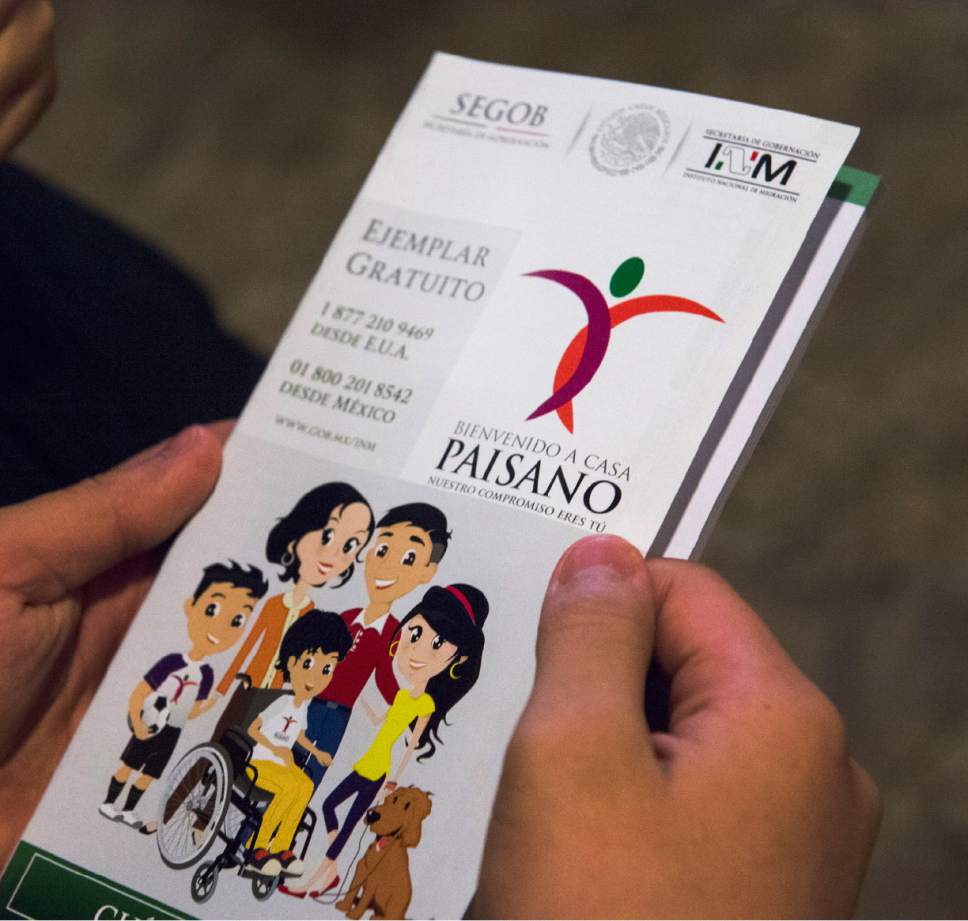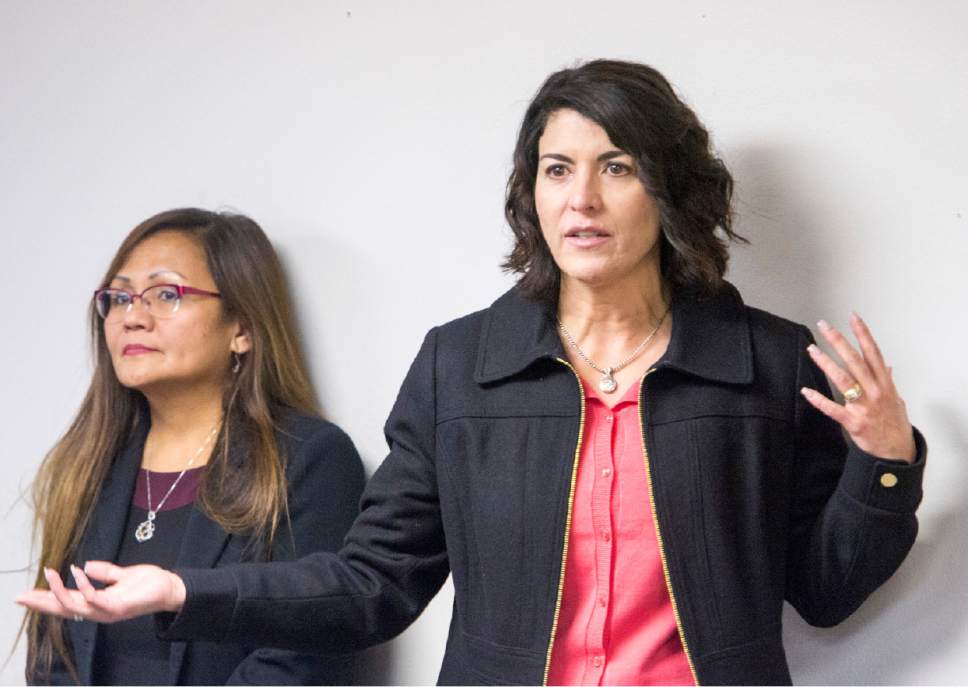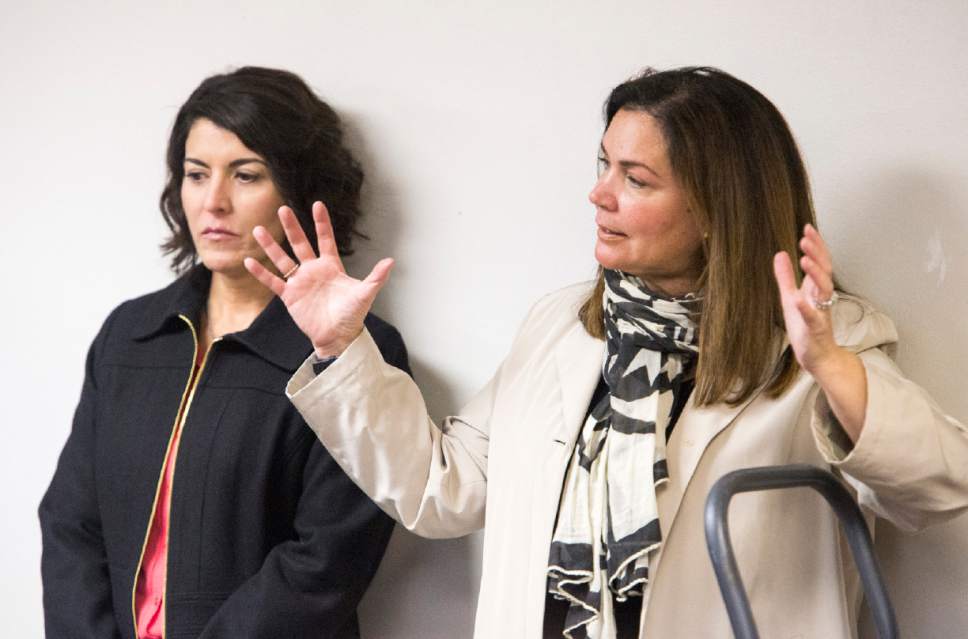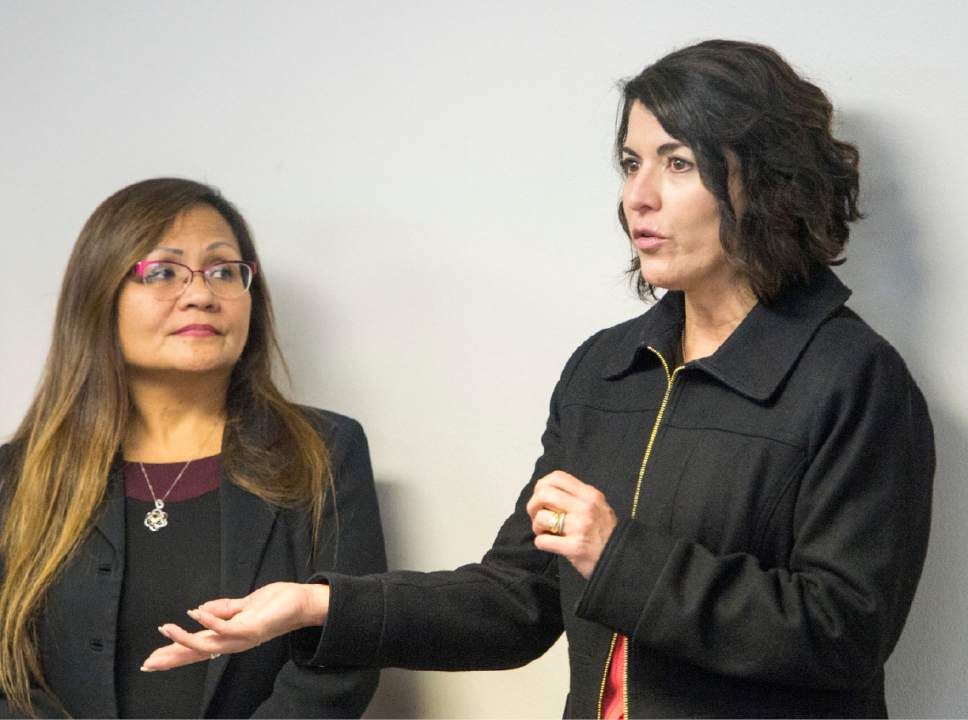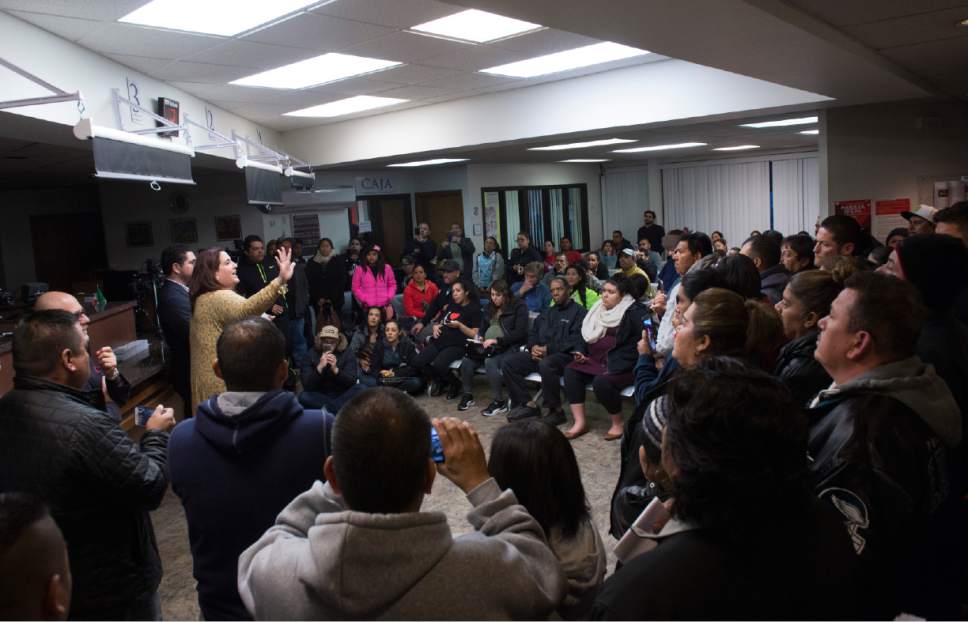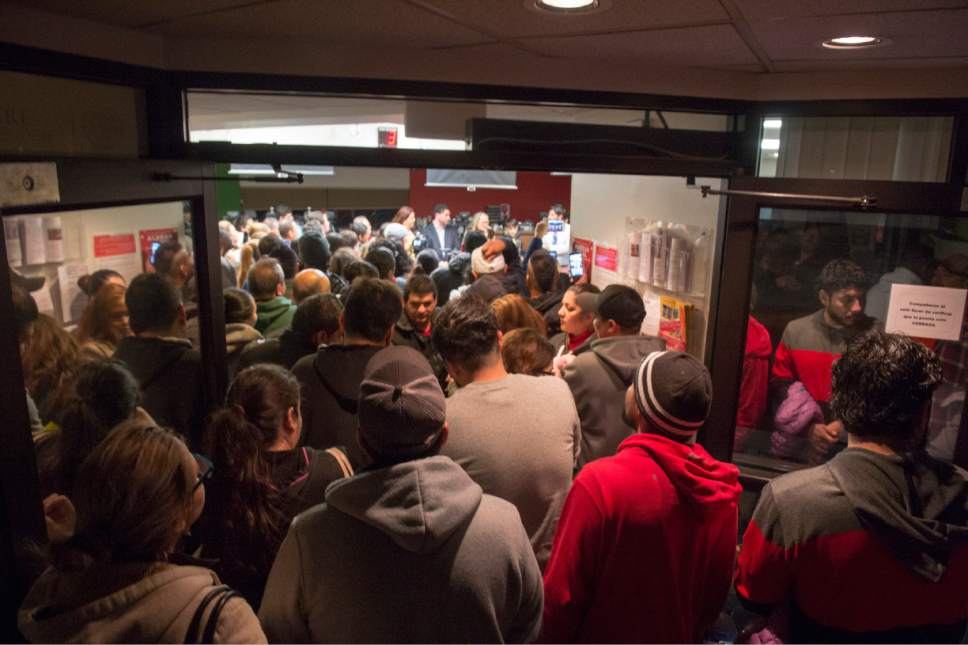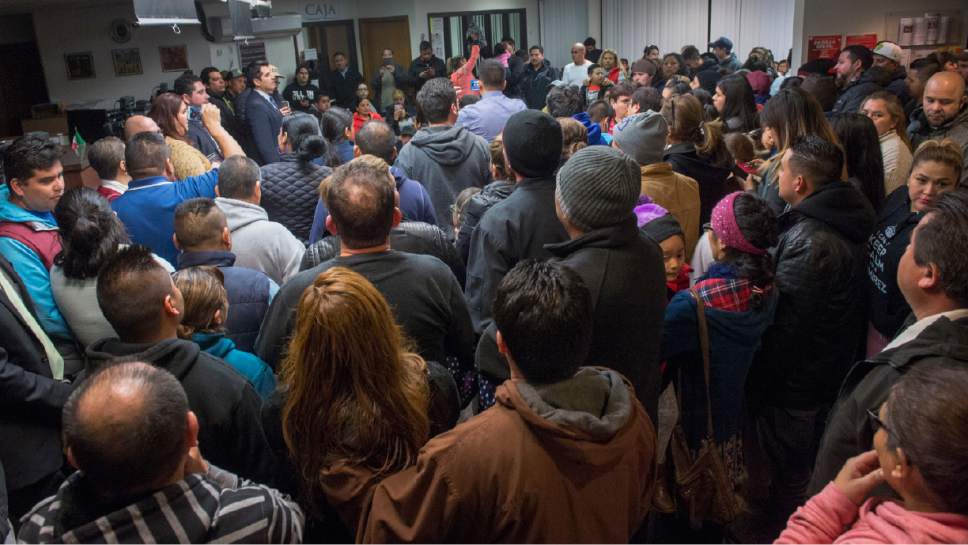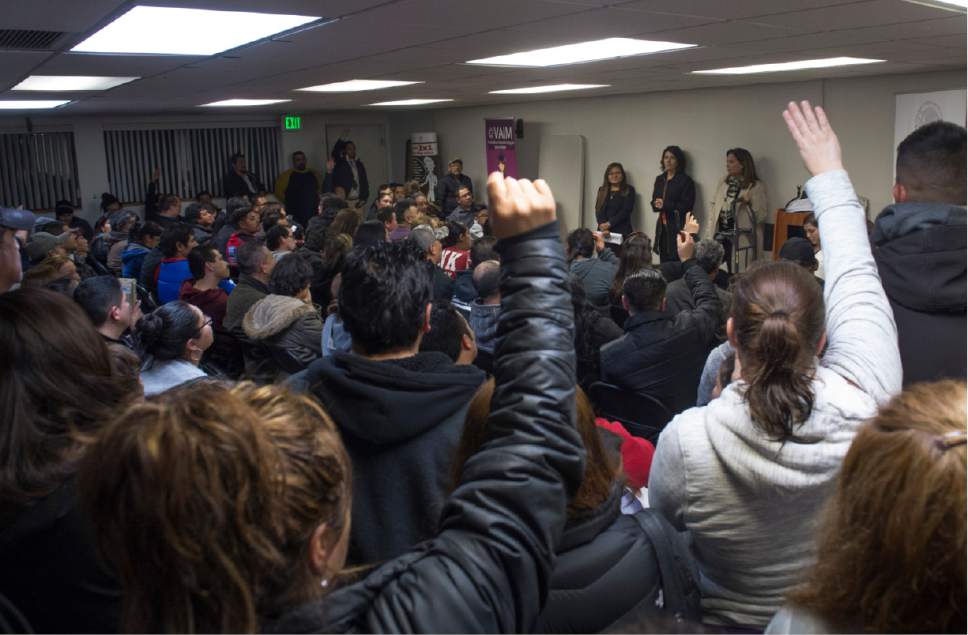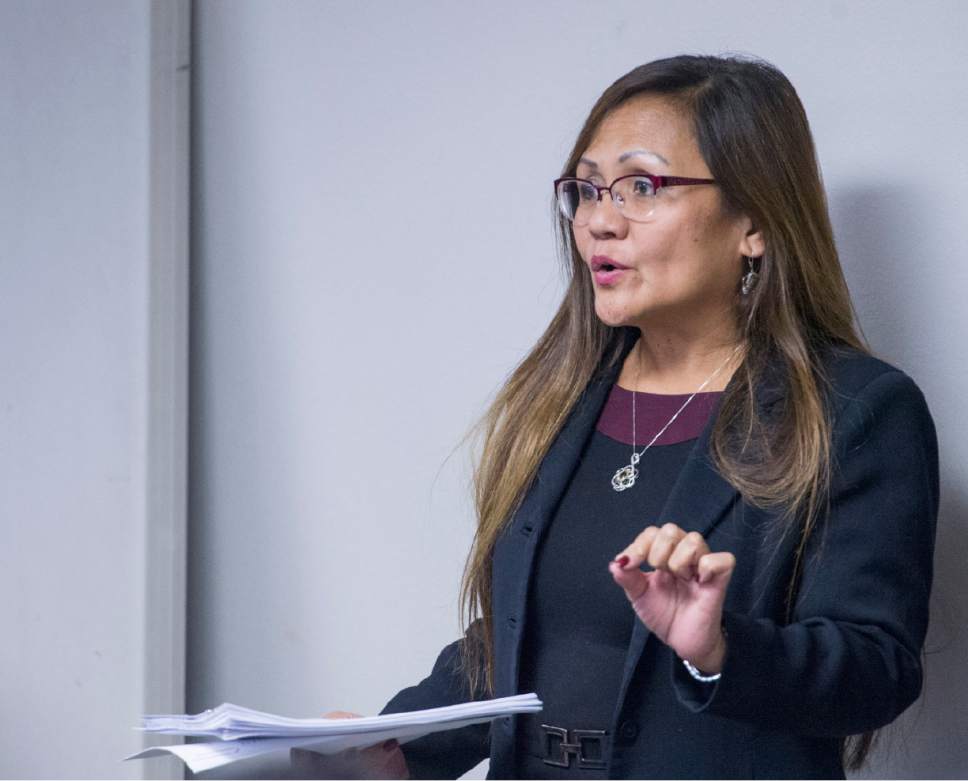This is an archived article that was published on sltrib.com in 2017, and information in the article may be outdated. It is provided only for personal research purposes and may not be reprinted.
Close to 500 people poured into the Mexican Consulate of Salt Lake City on Wednesday night to hear immigration lawyers explain their rights and give instructions. Five minutes before the meeting began, people crammed into the designated meeting room and spilled out into the hallway. As a consulate representative walked through the sea of people carrying more chairs, he said in Spanish: "We were expecting 50 people."
Inside, sitting and standing room was taken by families young and old, concerned about recent orders from the Trump administration detailing the nation's plan for mass deportation. One man mentioned he journeyed from Logan for the event. The room grew silent as five attorneys stood at the front to begin their address, but the crowd — too large to hear — ultimately split into two groups and met with the lawyers on multiple levels of the building. Tuesday's memo from the Department of Homeland Security deemed immigrants who have committed or been accused of "any" crime a priority for deportation, said attorney Barbara Melendez. The use of the word "any" makes it unclear what exactly qualifies as a crime, Melendez said, noting a question of whether traffic violations count as crimes.
In more than 20 years practicing as an attorney, "we have never seen this type of force, so excessive that it seeks to find a way to deport immigrants in the U.S., and even legal immigrants, people with residency," Melendez said in Spanish.
Melendez and the other lawyers told the hundreds in attendance that the most important thing they could remember is their right to remain silent.
Attorney Leonor Perretta instructed the people to keep their mouths shut, especially if they're being questioned by an immigration officer.
"This is out of character for us as Latinos," Melendez said. Normally, if someone asks your name, they'll learn your whole life story, but "we have to, in this case, be proactive for our own safety and be less vocal."
People living in the United States are under no obligation to speak to anyone or even open the door for someone they don't know, the lawyers said, unless a police officer has a warrant signed by a judge that specifically identifies you. However, the attorneys instructed, when an officer tries to detain an immigrant, the person should not resist arrest or lie.
"Lies only make things worse," Perretta said. The attorneys recommended watching a Chirla YouTube video that depicts a simulation of what to do in situations with law enforcement.
Once a person is in custody, the lawyers said, he or she should not sign anything they can't read or don't understand completely. While immigration officers may try to convince a person they have to sign something or give some kind of information out, Perretta said, don't believe them.
"Don't believe anything that immigration [officers] tell you because they are not your friends," Perretta said in Spanish. "I'm not saying they are bad people, but they have a job to do; you can't trust what they say."
Immigrants should also have a phone number memorized of a person they trust who can call a lawyer and take care of anything that needs attention while the immigrant is detained, they said.
Once a person is arrested and goes in front of a Utah judge, they have the right to a free translator, the lawyers said.
An immigrant's circumstances may also qualify him or her for exemption from deportation, said attorney Marlene Gonzalez, if they meet specific criteria and have evidence to back up claims.
Criteria for one exemption is if an immigrant has been in the U.S. for more than 10 years with good character and has a family member who is a citizen who would face "exceptional and unusual hardship" if the immigrant were deported, Gonzalez said. Another is if an immigrant would be in danger of being killed or badly injured if they return to their native country.
These things are difficult to prove, Gonzalez said, almost to the point where you need a letter from someone in your native country saying they want to kill you.
Despite the bleak circumstances, immigrants were instructed to remain calm.
"The situation is extremely difficult, but when things get difficult, that's when people fight more," Melendez said the crowd. Although Trump can give executive orders, he can't change the rights specified in the Constitution or dictate law.
"This can only be done by Congress and the Senate," she said.
Twitter: @mnoblenews


